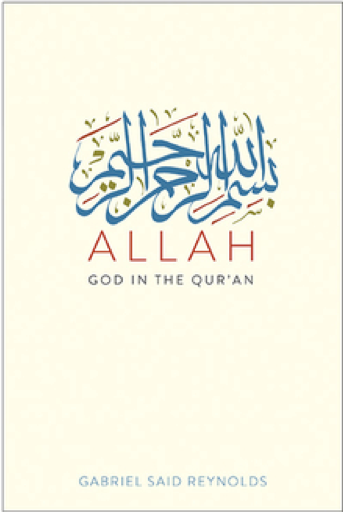IQSA’s own Gabriel Said Reynolds, professor of Islamic studies and theology at Notre Dame University, has recently published a new book titled Allah: God in the Qur’an (Yale University Press, 2020)

Overview
The theme of God’s mercy runs throughout the Qurʾan, every Sura of which (except Sura 9), begins with the invocation “In the name of God the merciful, the benevolent.” The Qurʾan, however, also emphasizes God’s justice and even His vengefulness. The Qur’an has God destroy nations for their rejection of prophets, and oppose unbelievers by sealing their hearts and leading them astray. It also describes the punishments of hell in gory detail. Thus the Qur’an does not offer a God who is simply merciful or vengeful. He is both.
The God of the Qur’an transcends any simple classification. He is personal and mysterious. Because of this, no limits can be placed on His mercy. Allah: God in the Qur’an argues that the Qur’an is open to God’s salvation of both sinners and unbelievers. At the same time, the book argues, Allah can and does lead humans astray. This paradox reveals the homiletic nature of the Qur’an.
This portrait of the dynamic and personal God in the Qur’an is illuminated with reference to the classical Islamic theological tradition, careful analysis of the Qur’an’s vocabulary, and reference to modern thinkers including Muhammad Ahmad Khalafallah.
While Allah: God in the Qur’an emphasizes the uniqueness of the Qur’an’s God, it also shows how many of His characteristics – including mercy and vengefulness – have antecedents in the Bible.
The epilogue of Allah: God in the Qur’an argues that because Allah demands the right to exact vengeance, humans have no license to do so. The Qur’an provides no justification for religious violence.
Want to read more? Purchase the book at Yale University Press, or find a copy at your local library!
© International Qur’anic Studies Association, 2020. All rights reserved.
